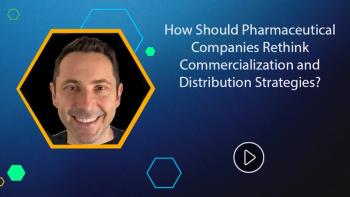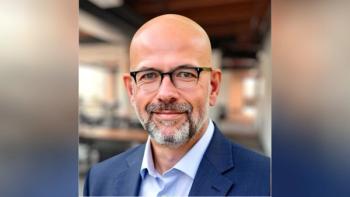
Merck Medical Affairs: An Enterprise-Wide Approach to Customer Intelligence
The importance of enabling customer intelligence at scale.
Most healthcare professionals (91%) place a high value on scientific exchange1 with medical science liaisons (MSLs) and say that biopharma is underutilizing its MSL workforce. In addition, Veeva Pulse data shows that field medical growth has remained flat over the past 12 months. To bridge this gap between supply and demand, some biopharmas are looking to bring more efficiency and innovation to their engagement strategy.
Merck’s Eric Toron, global head of medical operations, sees this challenge as an opportunity for medical affairs to lead the way on an enterprise-wide approach to expert engagement. For Toron, just adding more MSLs isn’t the answer. The greatest impact comes from using data and technology to enable MSLs to work smarter and scaling this globally across multiple therapeutic areas.
Real-time customer intelligence2 based on a single source of truth enables field teams to have deeper, more relevant interactions with external experts. And cross-functional visibility3 ensures coordination, collaboration, and transparency of expert engagement planning across teams. These two solutions are key to Merck’s innovative approach. “The right technology takes work out of the system,” says Toron. “It helps us simplify and take some of the burden off our field teams. That means more focus on scientific exchange, which is critical to our organization.”
Enabling customer intelligence at scale
A customer intelligence solution should be simple, easy to use, and seamlessly integrated into the field teams’ everyday workflow. First and foremost, however, the data needs to be accurate. “If one of our MSLs goes into our solution and finds inaccuracies, they are never going to use it again,” says Toron. “They know these HCPs, they know these key accounts, and if it’s not accurate or the data is not timely, they won’t use it.”
To achieve that accuracy, Merck needed data that was both curated and updated in real time. Merck implemented Veeva Link Key People4, giving MSLs deep insights on individual scientific, digital, and community leaders in their target therapeutic area, answering questions like:
- What are their topics of interest?
- What conferences do they attend?
- Where are they publishing?
- Are they a well-known expert or a rising star?
- How are they engaging with other experts on social media?
- Who else are they collaborating with?
Building on the success and learnings from medical affairs, the Merck team enabled customer-facing roles across the entire organization to work from the same intelligence in a compliant way. “An enterprise-wide approach to engagement is really important to us at Merck,” says Toron. “Our partnership with Veeva helps us to be more deliberate in how we engage. We can focus on the data and scientific exchange rather than the technology that enables it.”
Despite the complexity that exists across global markets, Toron saw a common need for customer intelligence. “It’s the same concept–peer-to-peer scientific exchange–and, in many ways, it’s ubiquitous across countries. It’s used and accessed the same way. Of course, there are differences and subtleties, but we were able to leverage the commonality that exists.”
Cross-functional workflows put customers at the center
Even though the organization is now working off the same customer intelligence, orchestrating expert engagement across the enterprise is an entirely different challenge. It’s probably not too hard to imagine an MSL meeting an oncology key opinion leader (KOL) at ASCO only to hear them say, “You know, you’re the sixth person from your company I’ve talked to this week.”
A lot gets lost in that moment, including time, resources, and the opportunity to create a better, coordinated customer experience that puts the KOL, rather than the business, at the center of the engagement.
“It has always been really important to coordinate our expert engagement strategy within medical affairs, but that’s really only half of the story,” says Toron. “We have colleagues in clinical and commercial interfacing with the same healthcare professionals (HCPs), and we haven’t done a great job of showing up with deliberateness as one company. We’re competing with each other, and we’re overwhelming them.”
Next, Merck is partnering with Veeva to implement a transparent solution for expert engagement planning across the entire business. It will allow the company to orchestrate engagement across functions."
This need for customer centricity is a core and pressing challenge for medical affairs–one that impacts the entire business, from clinical operations to field medical to marketing. And it’s a challenge thatMerck5 is facing head-on. As Toron puts it, “This is how you show up to your customer–as one company.”
Sonja Rivera is vice president of Veeva Link Key People.
Sources
- Wolf, Friedemann: Shah, Suchita; (September 9, 2021); BCG; Doctors’ Changing Expectations of Pharma Are Here to Stay; https://www.bcg.com/publications/2021/pharma-industry-changing-doctor-expectations
- Veeva; Measuring the Impact of Real-Time Customer Intelligence; https://www.veeva.com/resources/measuring-the-impact-of-real-time-customer-intelligence/
- Veeva; Driving Cross-Functional Engagement Planning; https://www.veeva.com/resources/driving-cross-functional-engagement-planning/
- Veeva; Real-Time Customer Intelligence for More Relevant Engagement; https://www.veeva.com/products/veeva-link/
- (Nov. 1, 2022); Veeva; Veeva and Merck Form Long-Term Strategic Partnership; https://www.veeva.com/resources/veeva-and-merck-form-long-term-strategic-partnership/
Newsletter
Lead with insight with the Pharmaceutical Executive newsletter, featuring strategic analysis, leadership trends, and market intelligence for biopharma decision-makers.




